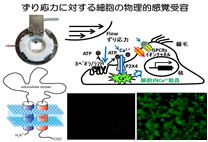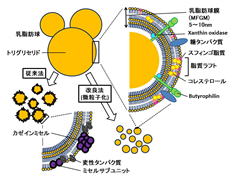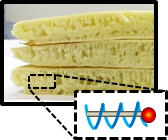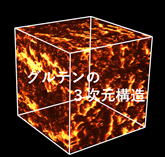 Research Interests Research Interests
|
 Sensing and Control of the Gastrointestinal Environment Sensing and Control of the Gastrointestinal Environment
|
| We are trying to control the spatiotemporal metabolism of nutrients in
the digestive tract by nanostructuring dietary fibers such as cellulose.
|
 |
 Biological Functions of Milk Fat Globule Emulsions Biological Functions of Milk Fat Globule Emulsions
|
|
Through cell biology, protein engineering, and structural biology methods
using organoids of tissue bodies similar to physiological organs, we aim
to elucidate the effects of milk fat globule membrane proteins on intestinal
epithelial cells and mucosal immune cells, and to use them as novel food
emulsion materials for application.
|
 |
 Evaluation and improvement of processing characteristics of food materials Evaluation and improvement of processing characteristics of food materials
|
|
Food materials have processing functionality to create various structures.
While working to make the most of the characteristics of each material,
we are also striving to achieve evidence-based food production by clarifying
the factors that determine these characteristics from a molecular theoretical
perspective.
|
 |
 Synthesis of rare sugars using subcritical water Synthesis of rare sugars using subcritical water
|
|
| Special reactions can proceed in water heated above 100°C by applying
pressure. For example, ordinary sugars can react to produce rare sugars,
and we are studying the optimal conditions for this reaction. |
 |
 Effects of food information on the senses Effects of food information on the senses
|
|
Gluten is one of the first proteins isolated by humans from nature and
is an important substance that determines the texture of noodles and other
products. We have succeeded in visualizing the structure of gluten in three
dimensions for the first time. We are currently investigating the relationship
between structure and texture, aiming to establish a basis for flexible
design of texture and other properties.
|
 |
| |
|